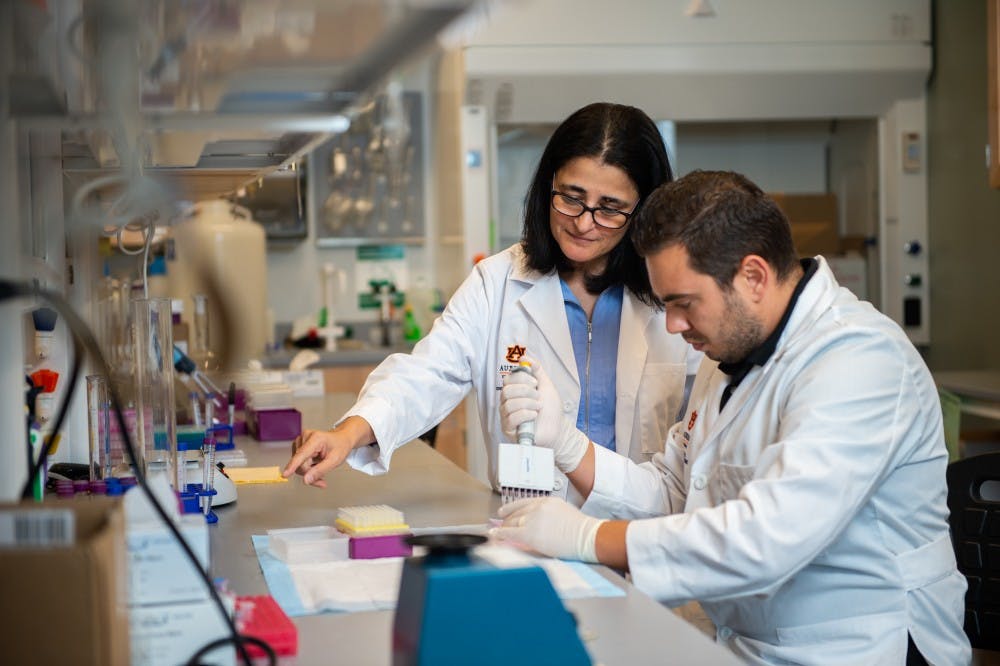Auburn University achieved a major goal Monday when it was named an R1 Carnegie research institution.
The designation — being elevated to an “R1” institution by the Carnegie Classification of Institutions of Higher Education — is a major milestone for the University's research efforts.
The classification, which recognizes the top 120 research institutions, has been a longterm goal for the university and one of the main priorities of President Steven Leath since he took office in March 2017.
The new honor follows Leath's announcement in December 2017 that the University would allot $5 million for three years toward the Presidential Awards for Interdisciplinary Research, or PAIR.
An R1 designation is reserved for doctoral universities with the highest levels of research activity.
Auburn is among 120 institutions to receive the R1 designation Monday.
The University was listed in the top 100 of R1 universities, raising its classification from an already lofty “high research” R2 classification to the new “very high research activity” R1 label.
“This tremendous designation acknowledges the hard work involved in the pioneering discoveries happening at Auburn every day,” Leath said. “We are grateful to the university’s faculty and staff, especially Graduate School Dean George Flowers, for their unwavering commitment to elevating Auburn’s profile as a world-class academic institution.
One of Leath's main goals since starting his tenure has been to raise Auburn's national profile as a premiere research institution. During his installation speech earlier this year, he promised to lead Auburn into a new age of research and innovation through reorganization, increased faculty and infrastructural advancements.
The designation Monday is a positive affirmation of efforts announced over the last year to hire new research-oriented faculty, among other initiatives to enhance research.
Leath — who was recently named one of seven new members appointed to the National Science Board, a policy-making body of the National Science Foundation — said the designation is a positive step in the right direction.
“Auburn is on the move, and this prestigious distinction recognizes Auburn’s critical role in creating new knowledge and helping others live better lives," he said.
Universities considered for the R1 designation must have awarded at least 20 research/scholarship doctoral degrees and had at least $5 million in total research expenditures, according to Carnegie’s classification website.
Auburn has been growing its research efforts in both STEM and non-STEM areas in recent years. The University says it has an institutional commitment to offer solutions to real-world problems and grow its reputation.
“Auburn University is known for its innovative and transformational research, and receiving the R1 classification is a significant accomplishment,” said Jennifer Kerpelman, interim vice president for research. “This classification recognizes the dedication, commitment and hard work of Auburn’s faculty and student researchers across all disciplines.”
Do you like this story? The Plainsman doesn't accept money from tuition or student fees, and we don't charge a subscription fee. But you can donate to support The Plainsman.

Chip Brownlee, senior in journalism and political science, is the editor-in-chief of The Auburn Plainsman.





